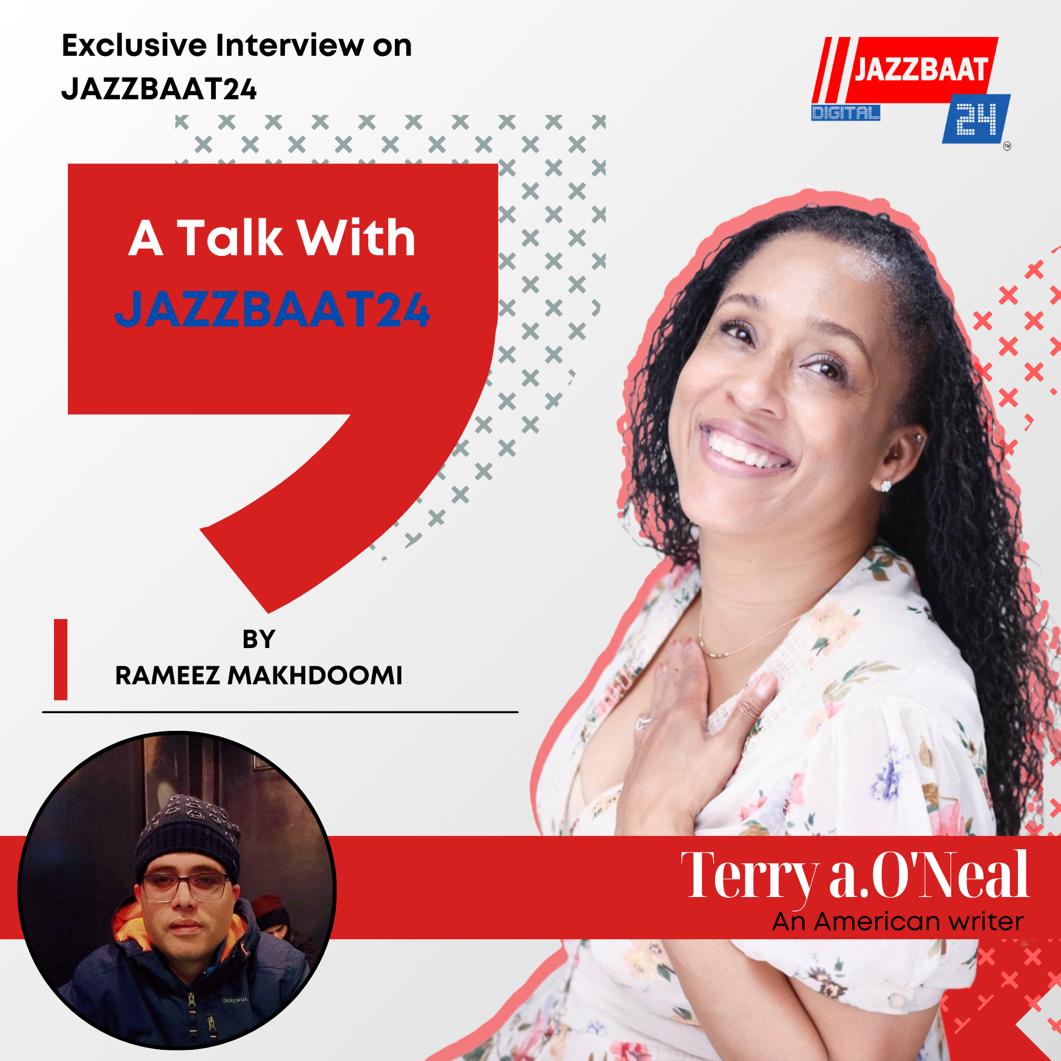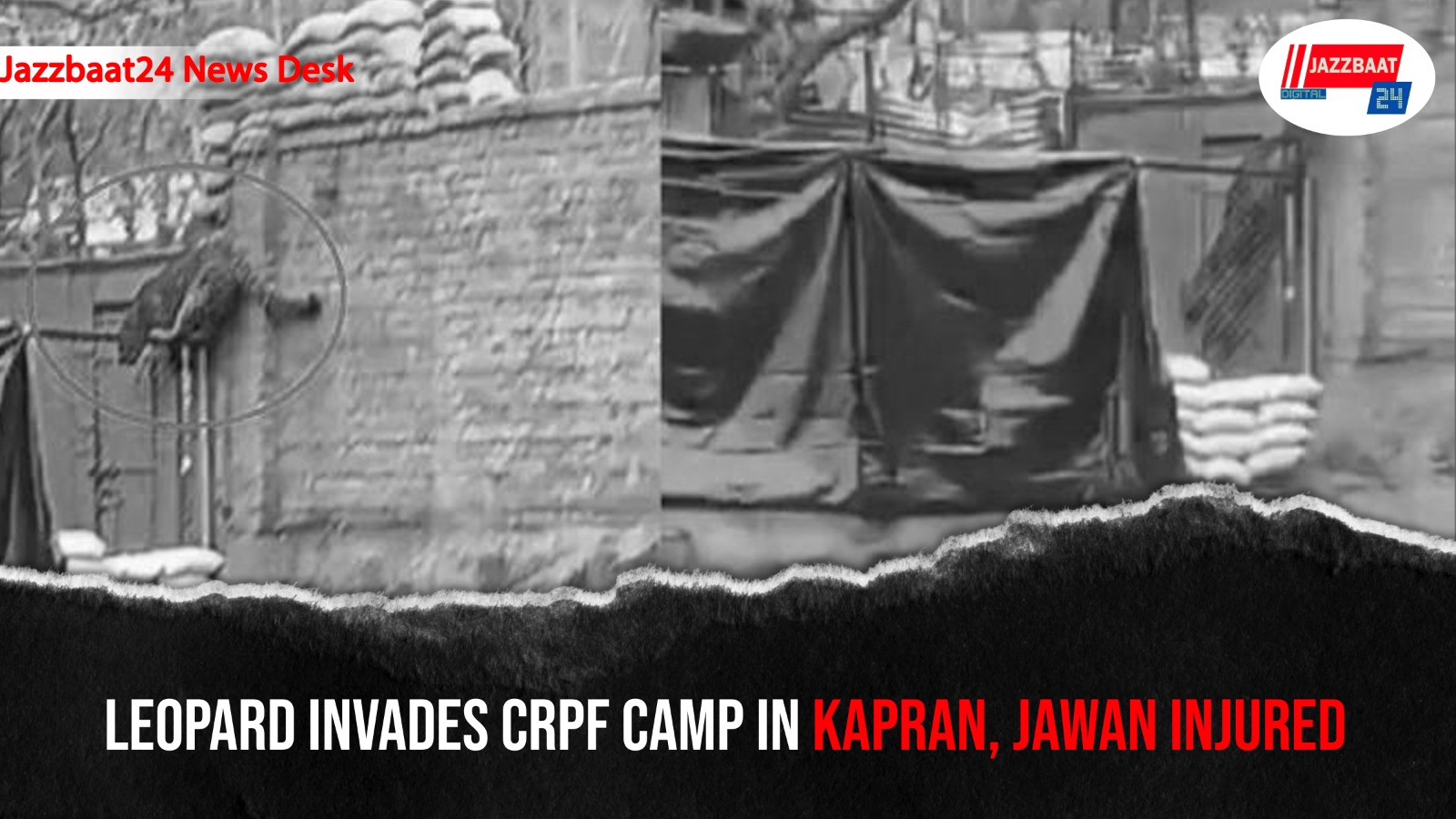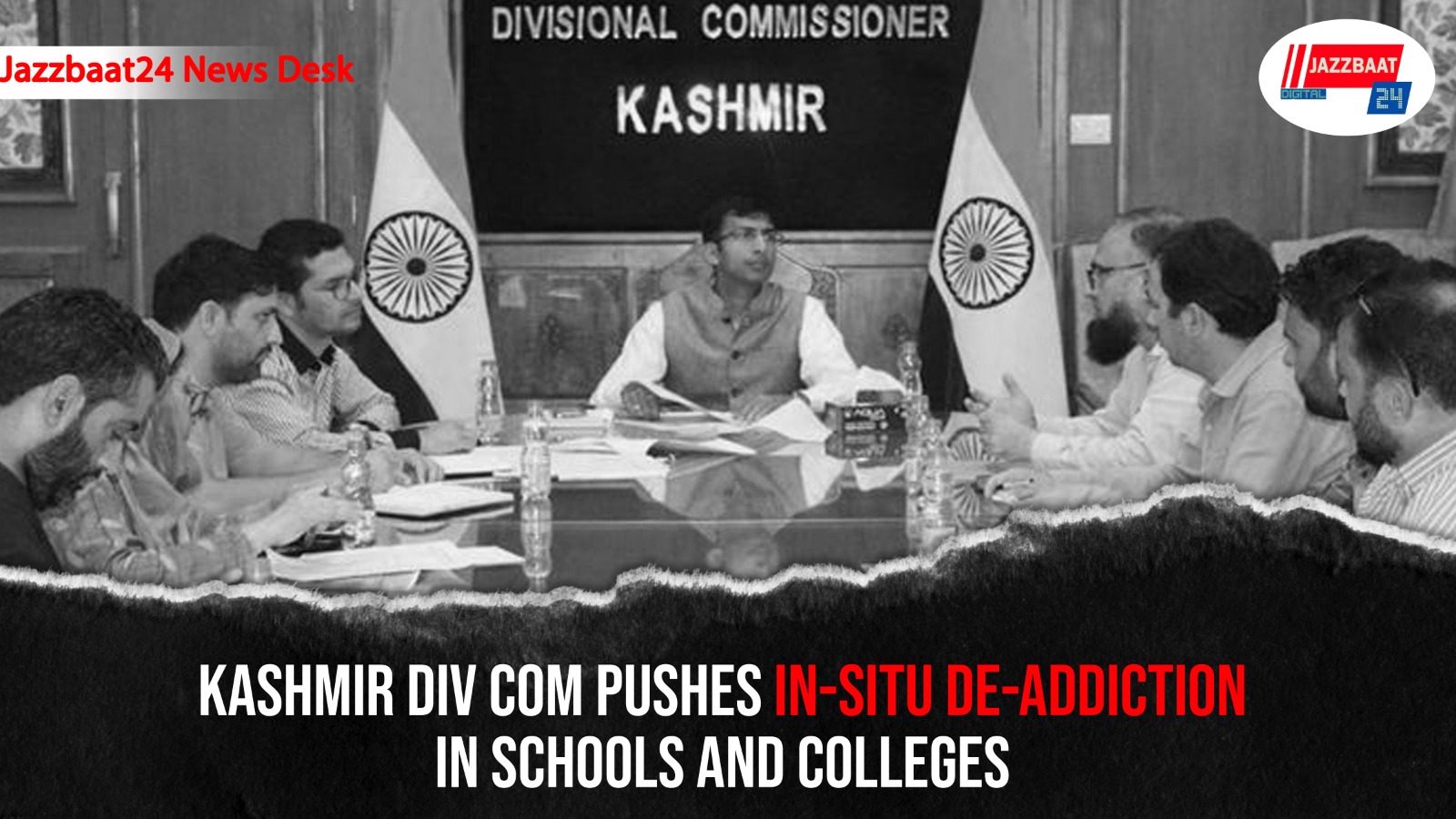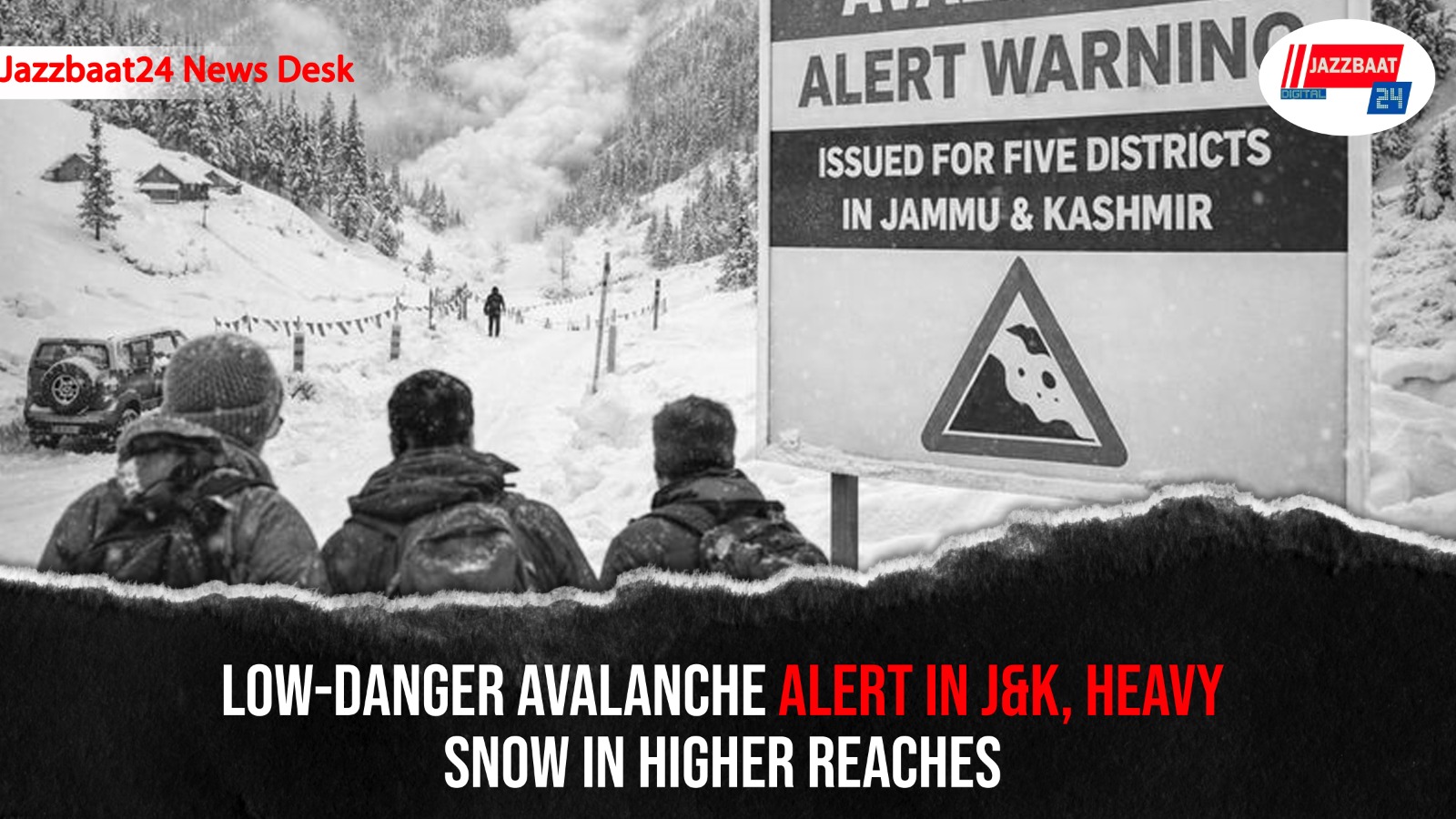I am a lifelong learner: Terry a O'Neal
Renowned Author and poet of United States of America, Terry a O'Neal is an intellectual of par excellence.
She is also eminent teacher and the editor of an upcoming anthology for educators entitled Make Some Noise Teaches! that is expected to be released in June 2024.
The anthology is a spin off of the Make Some Noise! Youth Poetry Anthology, only this collection is for teachers and educators to express themselves.
In an exclusive interview with the Jazzbaat, she talks to Rameez Makhdoomi.
Interview with Rameez February 7, 2024
On your Childhood Days?
It was my childhood days that shaped me into the woman, the writer, the human being I am today. My mother had the greatest influence on my life. She exposed me to arts, literature, and culture at a very young age.
My mother was not just a homemaker, she was a talented poet, artist, seamstress, and educator who instilled in me an appreciate for education, literacy, and writing—she was the strongest female figure in my life who introduced me to other strong female figures that would eventually contribute to the molding and shaping of the woman I became.
When I was five years old, I met one of the greatest voices in African American literature: Maya Angelou, and I remember the day very vividly. It was at the African Gallery in Stockton, California, where my mother worked and the small town where I was raised. The world- renowned author was holding a book signing at the gallery that day.
I recall my mother introducing us. Maya Angelou greeted me with her eyes and reached out to shake my hand, almost like I was her peer, or maybe she was simply teaching me a Black woman’s rules and etiquette of engagement by the simplest of gestures.
That mere handshake and eye-to-eye gaze would eventually become a life-changing moment for me. Even though I was too young to appreciate the experience at the time, I carried it with me for years to follow, and it shaped my life as a storyteller and lover of words.
Since I was a young child, I held a fondness for writing. It wasn’t until I graduated high school and went on to college that I decided to follow my dreams and embark upon a career in writing.
How was academic life?
I am a lifelong learner, and what some people call a professional student. Education has always been a priority in my life.
Growing up, my favorite subject had always been English. Math, on the other hand, was not my forte. I was terrible at it as much as I was intimidated by it.
Words have always intrigued me. As a young child, I would write lyrics for my sisters and I to sing. Maybe that contributed to poetry being my first love in literature.
While in secondary school, I enrolled in as many English courses I could because I was able to express myself creatively. During that time, I wrote a few short stories and poems that got lost while I was off exploring teenage life. Nothing ever became of them.
When I entered California State University Sacramento after graduating high school, I majored in Criminal Justice because at the time, being a writing did not seem pragmatic. It was not until I left the university after two years and enrolled in a community college (Consumnes River College) as a part time student. Because I married young and gave birth to my first child at eighteen, I had to find a job to help support my family.
It was during time as a community college student while enrolled in an English class that I was inspired to take my first steps into my literary journey. Part of the inspiration materialized from the feedback on my essay from my college professor.
In the essay, I was inspired to incorporate an original poem. On my paper, written in red ink, my professor wrote: “Nice poem. If this is the work of another author, please state the author’s name and where you found it.”
It was a bitter-sweet moment for me. Initially I was pleased that he liked the poem and believe it was fit to be the work of real writer. Then, shortly after, I became discontent with the thought that behind his feedback revealed the opposite—that I wasn’t good enough to be a real poet.
That night, I decided that I was going to embark upon my literary journey. With my very busy life, I knew it would take some time, but I was committed to seeing it through.
Years to follow, I continued my education, graduating with my Bachelors of Science in Communications with an emphasis in technical writing and my Masters of Arts in Education. After graduating from grad school, I began assistant teaching at Ashford University, and later became an adjunct instructor of English, Communications, and 20th Century Literature at a local college.
After relocating from California to the state a Virginia during the pandemic, I began teaching English in the public-school sector and it has been a very enlightening experience, to say the least.
Tell us about your literary journey?
When I share the story about my writing journey, I often say that it began while I was enrolled in an English course at a local community college in Sacramento, California, and the feedback I received on an essay from my professor was the catalyst that launched my literary journey.
The truth is, I was destined to be a writer, poet, and storyteller. It was by nature and nurture that I am what I am. It all began while developing in my mother’s womb and her consistent teachings after birth and throughout my childhood and adolescence.
My literary journey has been thorny at times, and I can honestly say that it’s somewhat stony as we speak. Still, the same expedition has provided me with valuable insight which has led me down the most charming untrodden paths.
Along the way, I have experienced some high highs and low lows. Nonetheless, I am eternally grateful for every moment: good, bad, or indifferent because there is always a lesson, and within the intricate details of every encounter lies a story.
My professional writing career, on the other hand, began in 1999, when my first book of poetry was published (Motion Sickness).
I always had a deep connection with the past—with my heritage and culture. Black writers from the Modernist and Harlem Renaissance era deeply move me because we have a shared interest, culture, and social inequality concern.
When my second volume of poetry, The Poet Speaks in Black, was released in 2001, it was greeted with more acceptance than the first book. My writing and poetic voice had grown from one book to the next.
Eventually, I began writing young adult, African American fiction, children’s books, and feature screenplays. With every work released, I moved up another level on the staircase. This is not to say that it has been easy. I have faced a great deal of rejection and disappointment carrying out this dream. When you put your heart and soul into something you’re passionate about, no matter how positive a person you may be, defeat stings regardless.
Your Role Models?
My mother has always been the leading role model and teacher in my life. She instilled in me essential principles and values—the love for God and family being the most highly regarded. Up until the last day she lived, her actions matched her words.
Not only was she a woman of high moral character, but she was also educated and talented. While teaching me how to read and write as a child, she introduced me to great African American women writers, who eventually inspired my literary voice.
As a poet and visual artists, my mother knew the importance of exposing her children to creative arts at a young age. As I reached my adolescence, she brought people into my life that would not only reinforce her teachings, but who would also push me to excel beyond my own expectations.
My high school counselor, Mable “Jimi” Choice, who eventually became my fellow poet had been a role model to me throughout my adolescence and young adult life. It was she who helped me hone my poetic voice.
Of course, there were many classic African American authors who I’ve always adored. Over the years, writers like Gwendolyn Brooks, Zora Neale Hurston, and James Baldwin have spoken to me within the narration and dialogue weaved throughout in their poignant stories. In my eyes, they have been poignant figures who have traveled beside me on my literary journey.
Your Future Goals?
My future aspirations are endless. Most writers have unfinished stories, and I am no different. I’m sitting on three novels in progress, a screenplay, and two new volumes of poetry.
In addition to my literary works, I am co-producer of a short film, that I have also written, that’s expected to move into production over the summer. It’s a story about three young adults whose lives collide at a crossroads in their lives.
I have always held a passion for bridging divides and igniting positive social change that led me to the nonprofit sector. Since 2005, I’ve headed several nonprofit boards. Currently, I serve as president of two: Living Better Lives and Words Manifest, LLC.
Living Better Lives is aimed to enrich the lives of youth in the United States and abroad by providing necessary resources and programs to improve personal and academic development that will help steer them toward success. The programs create awareness by building engaging, arts-driven programs that focus on education, literacy, music, technology, film, and theater.
Both organizations hold similar missions.
Words Manifest, LLC, that was newly founded last year, is designed to cultivate thriving communities by connecting writers and artists with the skills, information, and services necessary to use their creative abilities to make a living and have a positive impact the lives of others.
Helping others is not only God-driven purpose, but it has always been a lifelong desire.
Current Teaching Works?
I am an educator by nature. My professional teaching career started in 2012, as an assistant adjunct instructor with an online university. Years later, I started teaching English, Literature, and Communications as an adjunct instructor on a college campus in Sacramento, California.
Let me preface this by saying that I am passionate about teaching. I enjoy being an inspiration to others and contributing to positive change in the world.
The Covid-19 pandemic led me to become a teacher in the public-school sector in 2021—and I must say that it has been quite an interesting experience, to say the very least.
As an 8th and 9th grade English Language Arts teacher, I am enlightened by the promise that many of my students hold—they have tremendous potential. On the other hand, I must be honest and say that compared to generations past, the students of today have little to no ambition or desire to learn.
The average students’ knowledge and skillset are on the decline in America. Teenagers are more concerned about the latest gossip and what’s happening on social media than about learning how to read and write. It’s terribly disheartening.
Then, there is the lack of accountability and respect for authority.
Teachers are being battered, bruised, and beat down by the American public school for all the world to see. We see it on social media, news outlets, and television every day.
Who could imagine that we’d be living in a time where teachers need protective gear to be armed and ready for battle, and be made to contemplate life and death decisions simply to step foot into a classroom? To be a teacher in America’s public schools has become hazardous to one’s health.
However, we cannot place the blame solely on the students. They are children that are merely products of their environment. Parents need to step up more and also be held accountable for their child’s learning and behavior. Learning, values, and responsibility begins in the home.
The question at the heart of this ongoing controversy is always, who is to blame?
There are several culprits that contribute to this growing epidemic and school to prison pipeline that is plaguing American children. Students are victims of a system designed for them to fail— especially children of color. Systemic inequalities in education are plaguing minority populations at alarming rates in America.
Furthermore, it’s disheartening to see so many school administrations turn a blind eye to this because it doesn’t bring in government funding.
The purpose of public education has changed from when it was first established in 1647. It used to be “to teach children appropriate behavior for their social class and to make them
useful members of society” (Best, Michael).
Today, it is more of a money-making institution. If it doesn’t make dollars, it doesn’t make sense to the decision makers. Money and power in the wrong hands can have a detrimental effect on humanity.
America deserves better than what the education system is manufacturing: graduates that cannot read or write; colleges lowering standards to accommodate a generation that lack basic knowledge and education; and young people that lack accountability and responsibility.
As for teachers, they are the change we hope to see in the world; they are the light to a brighter future—a better America. Unfortunately, they’re left with the short end of the stick.
Plans to travel to India?
India is a beautiful country that has been on my place to explore list for many years now. My recent travels have carried me to Africa and Mexico. I am hoping to possibly visit India in 2025.
Your message?
My takeaway has always been and will continue to be, “Carry out your literary dream, no matter how unlikely it may seem.”
Resources:
Best, Michael. "The education of boys." Shakespeare's Life and Times. Internet Shakespeare Editions. University of Victoria, NaN undefined NaN. Web. 15 Feb. 2024.
<https://internetshakespeare.uvic.ca/Library/SLT/ideas/education/boys.html>.





